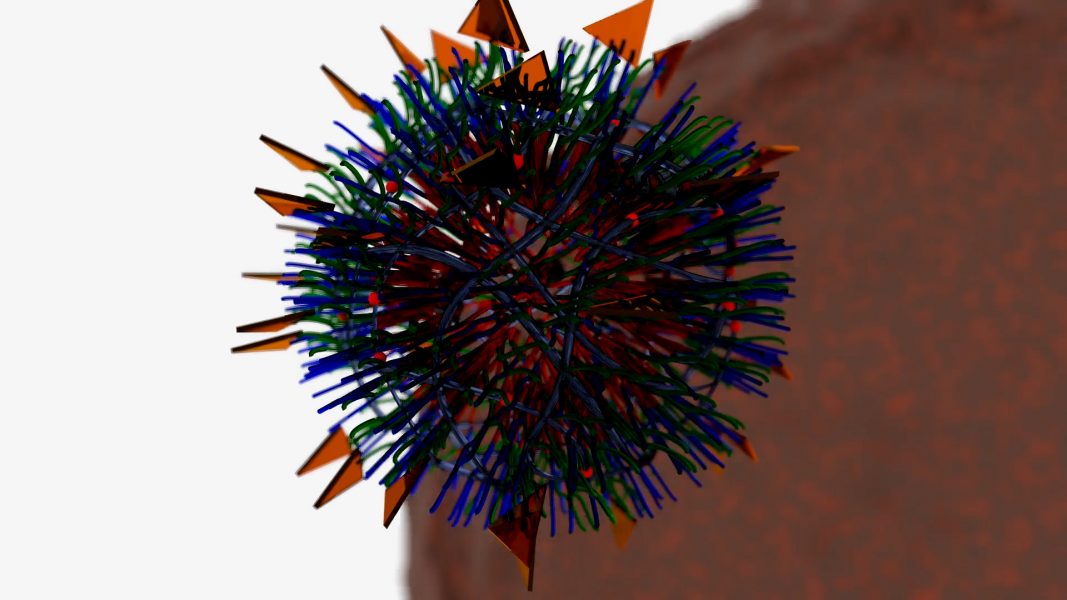While the ability of small interfering RNA (siRNA) to silence disease-causing genes renders them as a class of powerful drug candidates, delivering them to sites of therapeutic action is a challenge. Feasible synthetic carriers for systemic delivery of siRNA in humans have to be precisely assembled with predetermined sizes, surface properties, site-specific responsiveness, and reproducibility.
In their article in Advanced Functional Materials, Professor Tuo Jin and colleagues from Shanghai Jiao Tong University address these issues by constructing a synthetic carrier of siRNA with customizable size, pH-responsive degradability, and optimized surface population of cell-targeting agent using a series of thermodynamically self-regulated assembling processes.
A Schiff-base reaction between linear spermine-imidazole-imine oligomers and branched, low-molecular-weight polyethylenimine forms networked polyimines in water. The size of this networked cationic polymer is controlled by the zeta potential of the growing polymer. Increasing the pH of the solution from 9 to 12—or more conveniently, adding sodium chloride from 0 to 30 mM in solutions of pH 9—results in a gradual increase in the polymer’s diameter from 140 nm to over 400 nm.
Each single-molecule of the size-customized cationic polymer can pack sufficient copies of siRNA inside its network cavity before collapsing electrostatically to a dense unimolecular polyplex of reduced diameter. The polyplex can be functionalized by adding a triblock copolymer, where the distal end of its PEG block can be modified with a pentafluorophenol ester for “hooking” cell-targeting agents. In this way, the copolymer can be conjugated with a tumor-targeting agent, RGD. The resulting nanoparticle is called a “polywraplex”, which, having the right surface population of cell targeting agent, can be adsorbed onto the target cells.
Mice implanted with U-87 tumor cells were then injected with Cy5-siRNA-loaded RGD-polywraplex. Fluorescence intensity increased dramatically in the tumor when compared to naked Cy5-siRNA and the RGD-free polywraplex. In mice administered with anti-VEGF siRNA, tumors could be reduced to 31.5% of their original size using the RGD-polywraplex.
To find out more about this thermodynamically assembled, multipurpose drug delivery system for siRNA, please visit the Advanced Functional Materials homepage.

















